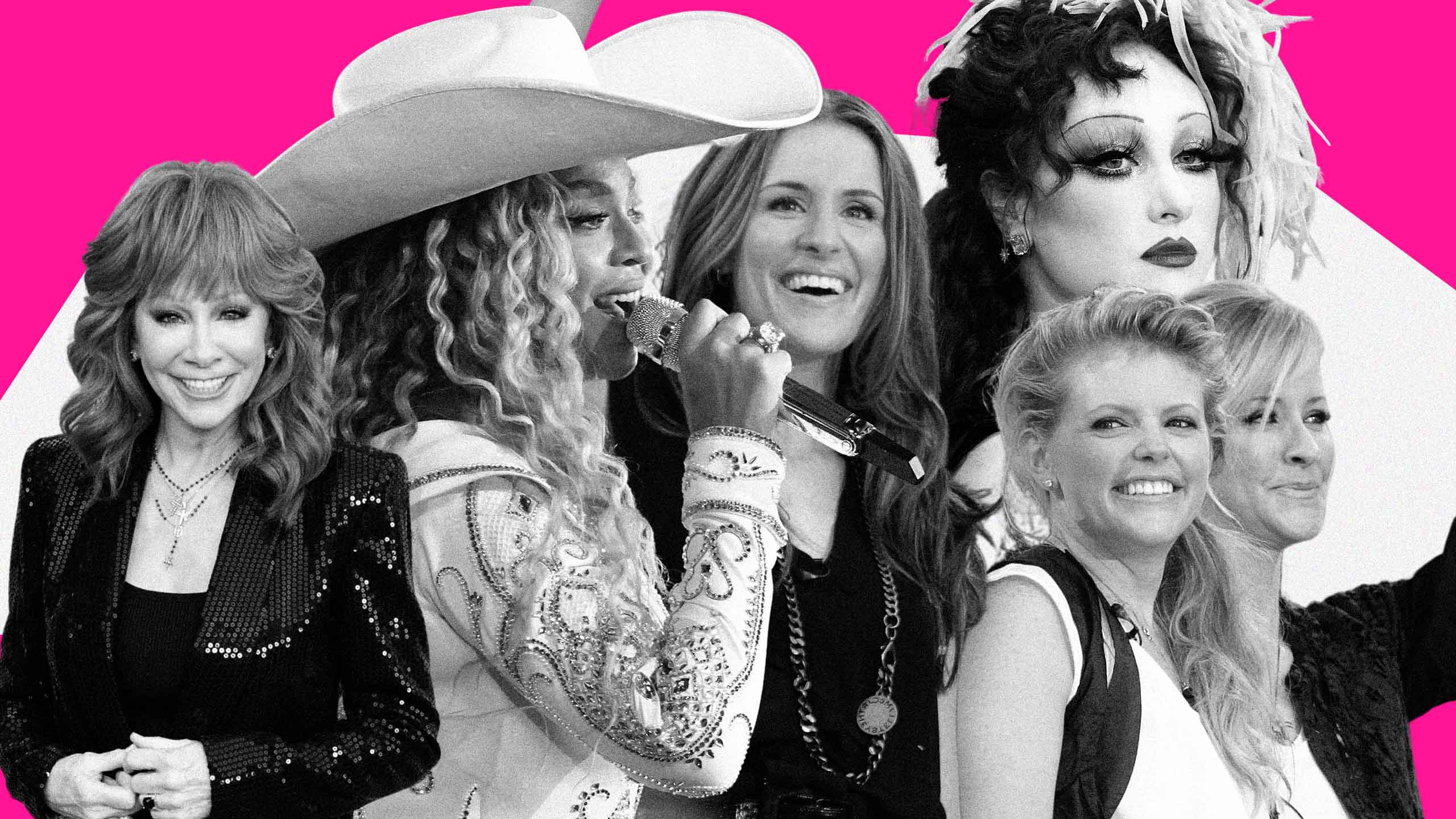I was recently asked while on a date what kind of music I listen to. I replied to his question with the truth, which was something along the lines of “Oh, you know, I love pop, folk, country,” My suitor for the evening furrowed his brow and gave me a shady up-and-down. “Word of advice: I wouldn’t tell people you listen to country music before a first date.”
On my walk home, I pored over his comment for two reasons: first, he was so catty and snide, even for a gay guy; second, he made me question my own perception of contemporary queer culture. I was under the impression that country was finally having a real moment among gay people. Chappell Roan just made the pivot from pop to country with her song “The Giver,” and Beyoncé won Best Country Album at the Grammy Awards this year. One can simply take a stroll down Montreal’s Saint Laurent Boulevard and count the cowboy boots paired with bedazzled trucker caps and booty shorts to be convinced that, whether my date likes it or not, country is in.
To his credit, the notion that country culture is embarrassing is not a rare one. Country music has long been a final frontier for a lot of urban queers; when asked for their music taste: “I listen to everything but country” is their standard response. I think the reason for this is that many big-city homosexuals have felt ostracized from the genre. Country music has historically been seen as the music of straight, white conservatives; those whose gods are Dale Earnhardt and Toby Keith, whose Hinge profiles are littered with pictures of footlong trouts dangling from fistfuls of fishing twine, who smoke Canadian Classics in the cabs of their lifted F150s while idling in the Tim Hortons drive-thru. Though there are gays who are indeed country and have always participated in this culture, it’s associated with a value system that is positioned at odds with that of lefty, metropolitan gays.
But the idea that country music has a lot of supporters who are straight and conservative is not a falsehood. Country is a big part of mainstream rural culture, and it’s no secret that folks living in rural areas are, on average, more conservative than their urban counterparts. However, I see this as a huge reason why queer people have felt a pull toward country-influenced style, design and music. It feels exciting to play with an aesthetic that may have felt exclusionary in the past. It’s a tongue-in-cheek co-opting of symbols that, whether fairly or not, have been perceived as representing queer suppression.
For example, Carrie Underwood performed at Donald Trump’s 2025 inauguration—a major blindside to those who foolishly assume all celebrities are Democrats. In this case, wearing the clothes of her culture feels like a bit of a fuck-you to the conservative establishment. When it comes to consuming the music, there is certainly a discussion to be had about separating the art from the artist and what it means to “support” an artist with conservative politics. That being said, I think 9.5 out of 10 gay people would be very hard pressed to keep their mouths shut while “Before He Cheats” is on at karaoke. Really, that’s beautiful.
Although our politics may not align, the content of country music is relatable to everyone and is especially relatable to queer people. I was quite the effeminate child and my music taste was that of any other gay boy—I loved all the pop divas, and followed the ups and downs of their careers with fervour. This musical childhood, however, was unfolding in rural Nova Scotia. By seventh or eighth grade, I grew tired of being an outsider and decided it was time to explore the country music that my peers were so fond of. While this was certainly a capitulation to “straight culture,” it was a fruitful endeavour. I discovered that country music, especially when it’s made by women, is positively delicious. The discographies of Miranda Lambert, Patsy Cline, Gretchen Wilson, Dolly Parton and Reba McEntire were waiting to be heard, and I couldn’t get my headphones on fast enough.
I fell in love with country because it’s about baring your heart and soul, getting a bit messy and rolling around in the dirt. Country music is tequila shots, dancing on the bar and doing things we know we shouldn’t. At the same time, it’s about losing the ones we love, yearning, life’s grand tragedies and, of course, killing your abusive ex-husband and buying a produce stand with your high school best friend. What’s gayer than all of that? Is this not why groups of gay guys are foaming at the mouth whenever a new season of Real Housewives drops? Are these not the same emotions we feel when listening to Norman Fucking Rockwell? Love and tenderness that borders on obsession … am I ordering the U-Haul, or are you? For fans of the melodramatic, country music is an untapped supply of content.
Looking beyond the music, country fashion is audacious and playful. Take the western shirt, for example: rugged and rough in form and purpose, yet soft and intricate in detail. Think of the bolo tie, with its brilliantly etched silver tips and bullhorn clasp, or even the cowboy boot with delicately embroidered flowers and pointed steel toes. I recently thrifted an adorable black tank top. Though the tag says “NASCAR for Women,” the shirt has flames shooting up the side of it and a huge stock car on the back. It clearly exists outside the realm of typically feminine fashion. This dichotomy of soft and tough persists as a defining feature of country fashion, and it’s a huge part of what makes the style so attractive to people of all genders. It’s what would make an outfit look good on both Jack Twist and Cay Rivvers. It’s the ability to simultaneously channel the masculine and the feminine in a way that is sexy yet silly.
A few weeks ago, I decided to go to Spurs, a queer line-dancing event that takes place in both Montreal and Toronto. Seeing a group of queers dressed in western shirts and cowboy boots coming together to stomp their feet to Shania Twain’s “Whose Bed Have Your Boots Been Under?” filled my heart right on up and reminded me once again that country is, at its core, fun. I think all of us could use a little more of that right now. If there is ever a second date with my country-averse cowboy-to-be, maybe I’ll take him to Spurs and show him what he’s missing.


 Why you can trust Xtra
Why you can trust Xtra


